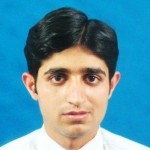- This topic has 48 replies, 12 voices, and was last updated 9 years, 8 months ago by
 Rajguru M. Mohan.
Rajguru M. Mohan.
-
AuthorPosts
-
-
April 1, 2016 at 4:18 pm #34404
 ZULKARNAINParticipant
ZULKARNAINParticipantMy query is related to high gain efficiency of an amplifier. Actually high gain efficiency can be desirable for an amplifier when a high gain is wanted. However, it can be preferable to have a not too large gain efficiency in cases where a high energy needs to be stored in a gain medium.
Can anyone explain why is this so?
Answers will be appreciated.
with regards -
April 1, 2016 at 4:26 pm #34409
Atul Sharma
ParticipantHello Zulkarnain. Greetings.
With high gain comes higher instability and hence high non linear effects which can degrade your system performance. The high gain efficiency has a direct impact on the physical layout parameters. No doubt you can keep the efficiency very high but there is a trade-off between the two. And i suggest you try to look at the ITU standards for the allowable gain. I hope you find it useful and more importantly helpful.
Regards
Atul Sharma-
April 1, 2016 at 10:42 pm #34426
 Aabid BabaParticipant
Aabid BabaParticipantHello Zulkarnain,
It is a good question. Here I agree with atul to some extent. If you consider any system the efficiency and gain are related and both do have a trade-off with the performance. For achieving high efficiency , we require high gain and theoretically the higher the gain , more efficient will be the system but practically with increasing gain to some level , the non-linearities cope in. I hope you understand the relation. Hope it helps you.
Regards-
April 2, 2016 at 3:11 pm #34648
Atul Sharma
ParticipantThanks Aabid.
-
April 3, 2016 at 10:15 am #34895
 Aabid BabaParticipant
Aabid BabaParticipantyou are welcome Atul.
-
-
-
April 1, 2016 at 4:32 pm #34411
 SAHIL SINGHParticipant
SAHIL SINGHParticipantHi Zulqarnain,
I completely agree here with abid baba that higher gain results in higher instability which largely affects the overall performance of the system.. Hope it helps
Regards
Sahil Singh-
April 1, 2016 at 4:36 pm #34414
 ZULKARNAINParticipant
ZULKARNAINParticipanthi sahil singh..
thank you for showing concern…
but i think you require more gain in the system for higher performance of the overall system and it is only at higher power when instability comes into existence. Also we can use dispersion mode fibers and amplifiers to increase the efficiency.
with regards..
-
-
April 1, 2016 at 4:33 pm #34412
 ZULKARNAINParticipant
ZULKARNAINParticipanthi atul sharma..
firstly i would like to thank you for answering my query.
i think the non-linear effects comes into existence at high power and not high gain efficiency.i got confused between high power and high gain efficiency. can you explain the difference between th two concepts for me atul sharma.
with regards.-
April 2, 2016 at 2:44 pm #34626
Atul Sharma
ParticipantHi zulkarnain. Greetings.
You are welcome.
-
-
April 1, 2016 at 4:42 pm #34415
 SAHIL SINGHParticipant
SAHIL SINGHParticipantHi Zulqarnain,
I agree with your view that you require more gain in the system for higher performance of the overall system but you cannot go on incresing the gain arbritarily to a large extent.The gain of the system has to be within the specified standard limits.. No doubt we can use dispersion mode fibers and amplifiers to increase the efficiency…
Regards
Sahil Singh
-
April 1, 2016 at 4:58 pm #34418
 ZULKARNAINParticipant
ZULKARNAINParticipanthi all…
thank you for showing the concern..
i got the answer perhaps and it is the non-linearity at high energy which degrades the system performance.So large gain efficiency is not preferable at high energy levels.
with regards-
April 1, 2016 at 10:48 pm #34428
Atul Sharma
ParticipantHi Zulkarnain.Good Morning. Greetings from my side.
Well i think you have confused yourself between gain efficiency and power. As i had mentioned that for higher gain system becomes slightly instable and this is true to some level. For a system your gain should be optimum and the gain decides efficiency no doubt but in practical systems gain needs to be of optimum level else non linearities exist. I want to clear here that high power is one of the techniques to increase the gain efficiency of the system. So you can relate them that way. I hope in answered your question here.
Regards
Atul Sharma
-
-
April 1, 2016 at 5:03 pm #34419
 SAHIL SINGHParticipant
SAHIL SINGHParticipantHi Zulqarnain,
Infact i am glad to know that your query was resolved.. All the best..
Regards
Sahil Singh
-
April 1, 2016 at 10:20 pm #34422
 Dr. Dhiman KakatiParticipant
Dr. Dhiman KakatiParticipantHi Zulkarnain, I agree with Atul’s answer that at high gain the fiber nonlinearity comes into play because as the power of the signal goes high it starts to interact with the fiber material and refractive index starts to change at that level, so limit should be there.
Regards,
Dhiman -
April 1, 2016 at 11:21 pm #34434
 Aabid BabaParticipant
Aabid BabaParticipantHi Zulkarnain,
I completely agree with Atul. I think he is right in saying that For a system our gain should be optimum and yes it is the gain that decides efficiency as i had also mentioned in my previous comment but yes in practical systems gain needs to be of optimum level because non linearities would come into existance. I also agree with him saying that that it is the fact that high power is one of the techniques to increase the gain efficiency of the system.So there shouldn’t be any of the confusions now. I hope it is helpful to you.
Regards -
April 2, 2016 at 12:50 am #34444
 aasif bashir darParticipant
aasif bashir darParticipanthi zulkarnain,
the high gain of amplifiers results in the very high power intensity in the optical fibers…this creates the non linear effects…
in the amplifiers like SOA the saturation of power levelm can create the frequency chirping…
moreover.
With high gain comes higher instability and hence high non linear effects which can degrade your system performancewith regards
-
April 2, 2016 at 1:06 am #34446
 SAHIL SINGHParticipant
SAHIL SINGHParticipantHi Aasif Bashir,
I completely agree with your point and the same i mentioned to Zulqarnain in the previous comments as well that with high gain comes higher instability which can lead to degardation of the system performance… So the gain must be optimum..
Regards
Sahil Singh -
April 2, 2016 at 2:01 am #34450
 ZULKARNAINParticipant
ZULKARNAINParticipantHI ALL…
Thank you all for explaining my query.i got the answer for my question that at high gain efficiency non linear effects come into play and high power is a technique to increase the gain efficiency of the system.
with regards-
April 2, 2016 at 2:47 pm #34630
Atul Sharma
ParticipantYou are welcome Zulkarnain.
-
April 3, 2016 at 10:18 am #34899
 Aabid BabaParticipant
Aabid BabaParticipantwelcome.
-
-
April 2, 2016 at 2:05 am #34451
 ZULKARNAINParticipant
ZULKARNAINParticipantso it is the optimum gain which we have to choose such that high signal power doesn’t interact with the fiber material resulting in change of it’s refractive index as mentioned by dhiman kakati in one of his comments.
thanks once again
with reagrds -
April 2, 2016 at 2:50 am #34456
 umer syedParticipant
umer syedParticipanthi zulkarnain
I agree with aabid and aasif
The high gain efficiency has a direct impact on the physical layout parameters. If you consider any system the efficiency and gain are
related and both do have a trade-off with the performance. For achieving high efficiency , we require high gain and theoretically the
higher the gain , more efficient will be the system but practically with increasing gain to some level .In the amplifiers like SOA the saturation of power levelm can create the frequency chirping…-
April 2, 2016 at 2:59 am #34458
 ZULKARNAINParticipant
ZULKARNAINParticipanthi umer syed..
thank you for replying. Definitely you right in saying that at high gain efficiency the non linear effects come into existence and i got the answer for my question.
with regards -
April 3, 2016 at 10:19 am #34900
 Aabid BabaParticipant
Aabid BabaParticipantYes Umer Syed i guess it is so.
-
-
April 2, 2016 at 3:22 am #34462
 SAHIL SINGHParticipant
SAHIL SINGHParticipantHi Umer syed,
Indeed nice point figured out frequency chirping particularly at the saturation of power level… Thanks for the information
Regards
Sahil Singh -
April 2, 2016 at 7:44 am #34478
Atul Sharma
ParticipantHello everybody. Good afternoon. greetings from my side!
I think it was a healthy and positive rather productive discussion. All the views put forth by other members are true in one or the other way. So i believe Mr Zulkarnain should have had his confusions cleared regarding high gain efficiency and high power and their co-relation with the non linearities. It would be simply easy to understand if you try to implement it in Optisystem and check out for different results you get. I hope that will help you.
Regards
Atul Sharma-
April 2, 2016 at 2:07 pm #34603
 Aabid BabaParticipant
Aabid BabaParticipantHi All,
I agree with all the replies in some or the other way. It is true that for a system our gain should be optimum and yes it is the gain that decides efficiency as it had been also mentioned in previous comments but yes in practical systems gain needs to be of optimum level because non linearities would come into existance.
Also it is a fact that high power is one of the techniques to increase the gain efficiency of the system.So there shouldn’t be any of the confusions now. I hope it is helpful to you….
Regards
-
-
April 2, 2016 at 11:15 am #34532
 ZULKARNAINParticipant
ZULKARNAINParticipantthank you atul sharma and fayiqa naqshbandi for your replies.indeed it is the optimum gain that is required in practical scenarios otherwise the non linearties come into existence.
with regards -
April 2, 2016 at 11:16 am #34533
 Ankita SharmaParticipant
Ankita SharmaParticipantHi all,
It has been rightly pointed out by all forum members that at high gain efficiency the non linear effects come into existence which surely will effect the system performance…
Thanks and regards
-
April 2, 2016 at 3:09 pm #34646
 SAHIL SINGHParticipant
SAHIL SINGHParticipantHELLO ZULKARNAIN..
I completely agree with Atul sharma, aabid and Dhiman… I think they have rightly mentioned that for a system gain should be optimum … It is rightly mentioned the the gain which decides efficiency but yes in practical systems gain needs to be of optimum level because non linearities would come into existance….
Thanks & Regards
Sahil Singh-
April 2, 2016 at 11:25 pm #34695
 Dr. Dhiman KakatiParticipant
Dr. Dhiman KakatiParticipantHello Everyone,
to avoid fiber non-linearity, I came across a point that the power of the optical signal should not be more than 6 dBm for in line (i.e. fiber) transmission in practical case though in simulation platform we use 10 dBm as launch power in many of the cases. I have seen this in samples provided along with optisystem. Still not sure about the exact no.Regards,
Dhiman-
April 3, 2016 at 6:23 am #34760
 ZULKARNAINParticipant
ZULKARNAINParticipanthi diman kakati…
thanks and regards fro replying to my query.
you mentioned that the power of the optical signal should not be more than 6 dBm for in line (i.e. fiber) transmission in practical case though in simulation platform we use 10 dBm as launch power in many of the cases.will you please send me the link of this topic so that i can look into this.i will definietly try to implement this in my design.
with regards -
April 3, 2016 at 10:04 am #34887
 Dr. Dhiman KakatiParticipant
Dr. Dhiman KakatiParticipantHi Zulkarnain, I will not be able to provide you with the link or details as i read it one of paper online about what you have asked regarding ” the power of the optical signal should not be more than 6 dBm for in line (i.e. fiber) transmission in practical case though in simulation platform we use 10 dBm as launch power in many of the cases.” I will try to find the same link and let you know if I get it.
Regards,
Dhiman
-
-
April 3, 2016 at 6:19 am #34757
 ZULKARNAINParticipant
ZULKARNAINParticipanthi sahil singh..
i also agree with you and all other forum masters that the gain decides efficiency but yes in practical systems gain needs to be of optimum level because non linearities would come into existance….
Thanks & Regards -
April 3, 2016 at 10:22 am #34903
 Aabid BabaParticipant
Aabid BabaParticipantTrue that.
-
-
April 3, 2016 at 12:54 am #34699
 SAHIL SINGHParticipant
SAHIL SINGHParticipantHi Dhiman,
I agree with your point of view… You have very correctly mentioned it that to avoid fiber non-linearity,the power of the optical signal should not be more than 6 dBm for in line transmission but in in practical case though in simulation platform we use 10 dBm …It is indeed provided in the samples in the optisystem… Thanks for the information…
Regards,
Sahil Singh-
April 3, 2016 at 10:09 am #34891
 Dr. Dhiman KakatiParticipant
Dr. Dhiman KakatiParticipantThank you Sahil Singh for the appreciation.
Regards,
Dhiman
-
-
April 3, 2016 at 6:23 am #34759
 umer syedParticipant
umer syedParticipantthanks sahil singh for your appreciation
with regards -
April 3, 2016 at 6:27 am #34762
 SAHIL SINGHParticipant
SAHIL SINGHParticipantHi Umer Syed,
You are welcome and as i mentioned previously also optiwave is a great platform for sharing knowledge and helping each other… Cheers
Regards
Sahil Singh -
April 3, 2016 at 10:37 am #34911
 SAHIL SINGHParticipant
SAHIL SINGHParticipantHi Dhiman Kakati and Atul Sharma,
Your efforts are indeed worth appreciating.. and you are always welcome..
Regards
Sahil Singh-
April 3, 2016 at 11:00 am #34931
Atul Sharma
ParticipantThank you so much Sahil. it feels good when you are appreciated.
Cheers.
-
-
April 3, 2016 at 11:13 am #34944
 SAHIL SINGHParticipant
SAHIL SINGHParticipantHi Atul Sharma,
Your efforts are appreciated and you are welcome… Cheers
Regards
Sahil Singh -
April 4, 2016 at 12:23 am #35141
 Ranjeet KumarParticipant
Ranjeet KumarParticipantHi,
The gain efficiency may also sometimes refer to the stored energy instead of the pump power. A high gain efficiency can be desirable for an amplifier when a high gain is wanted. However, it can be preferable to have a not too large gain efficiency in cases where a high energy needs to be stored in a gain medium.
optical amplifiers are desired to operate in the saturation region in order to achieve high output power and high efficiency. -
April 4, 2016 at 7:09 am #34971
 varinder singhParticipant
varinder singhParticipantthis is most commonly required in high gain amplifier …..and high gain amplifiers means oscillators but as we know that oscillators are basically instable…..also oscillators had low efficiency ….so u can conclude that if u want high gain than efficiency become lower……you should do some trade off between the two….
-
April 4, 2016 at 7:10 am #35168
Ubaid Bhat
ParticipantHI RANJEET KUMAR…
You have mentioned that gain efficiency is sometimes also referred to the stored energy instead of the pump power.Can you explain it further or forward a link so that i can look into that.
yes i agree with you that it is desirable to operate optical amplifiers in the saturation region in order to achieve high output power and high efficiency.
with regards -
April 5, 2016 at 3:22 am #35600
 Ranjeet KumarParticipant
Ranjeet KumarParticipantHi Ubaid,
i am sharing the from where i have taken the points.
https://www.rp-photonics.com/gain_efficiency.html-
April 22, 2016 at 8:55 am #38442
 ZULKARNAINParticipant
ZULKARNAINParticipantthank you for sharing this info.
it is very helpful.
with regatds
-
-
April 22, 2016 at 12:50 pm #38447
 Rajguru M. MohanParticipant
Rajguru M. MohanParticipantHi, Zulkarnain,
Yeah, i agree to the points that A high gain efficiency can be desirable for an amplifier when a high gain is wanted.
Fiber amplifiers with small effective mode area can easily reach differential gain efficiencies of several dB/mW,
with special optimization even more than 10 dB/mW. However, it can be preferable to have a not too large gain
efficiency in cases where a high energy needs to be stored in a gain medium.
optical amplifiers are desired to operate in the saturation region in order to achieve high output power and high efficiency.
As The gain efficiency may also sometimes refer to the stored energy instead of the pump power.Thanks
-
April 3, 2016 at 10:16 am #34898
 Aabid BabaParticipant
Aabid BabaParticipantwelcome anytime.
-
-
AuthorPosts
- You must be logged in to reply to this topic.

